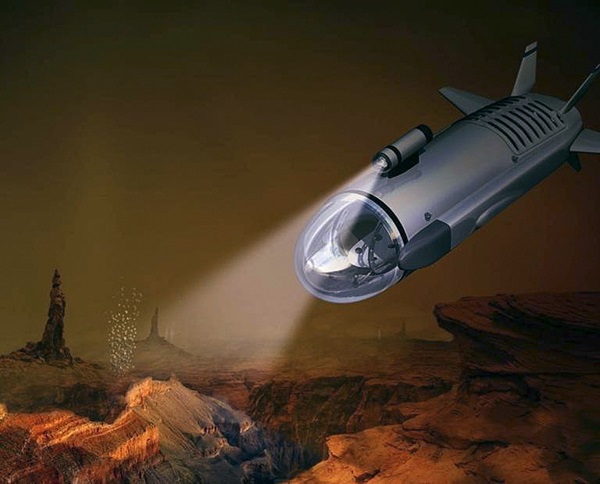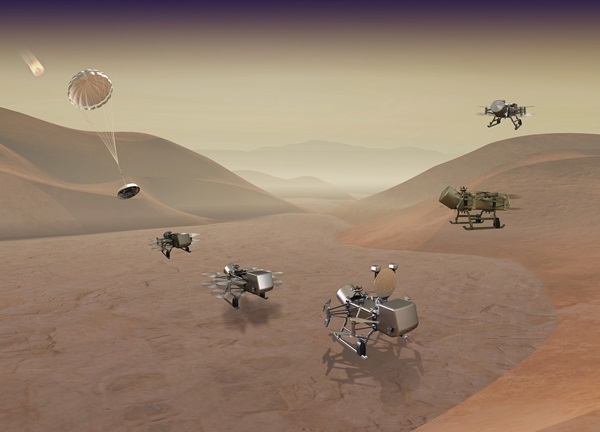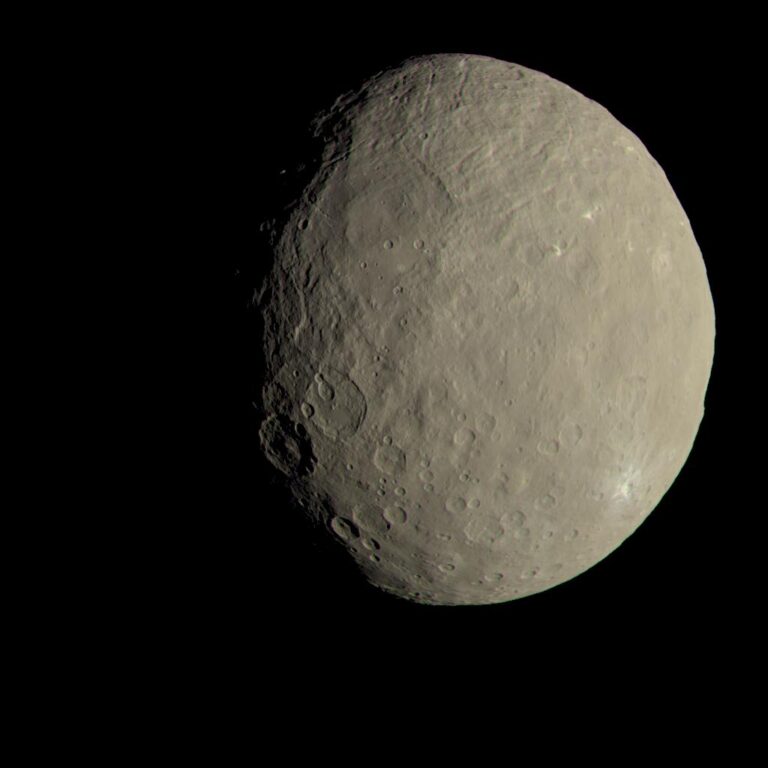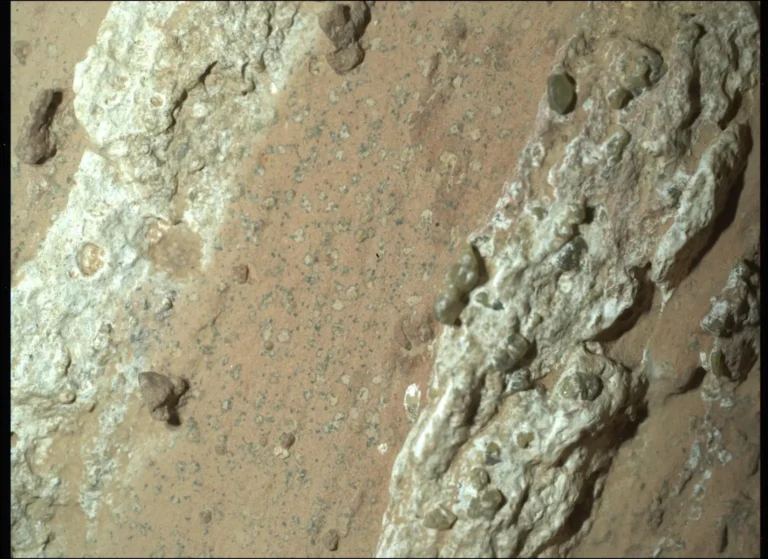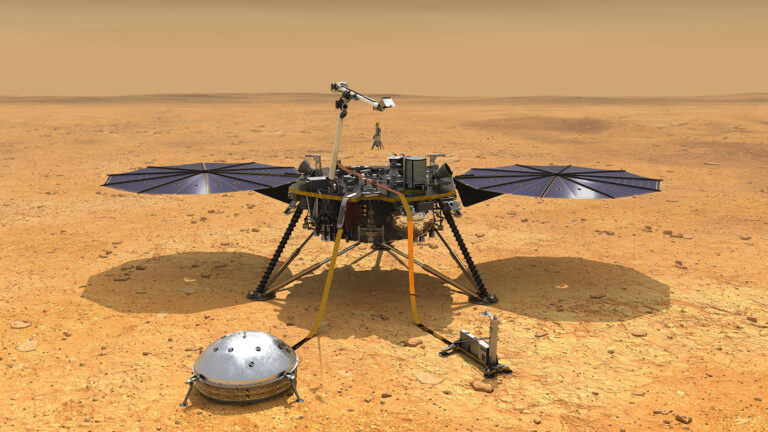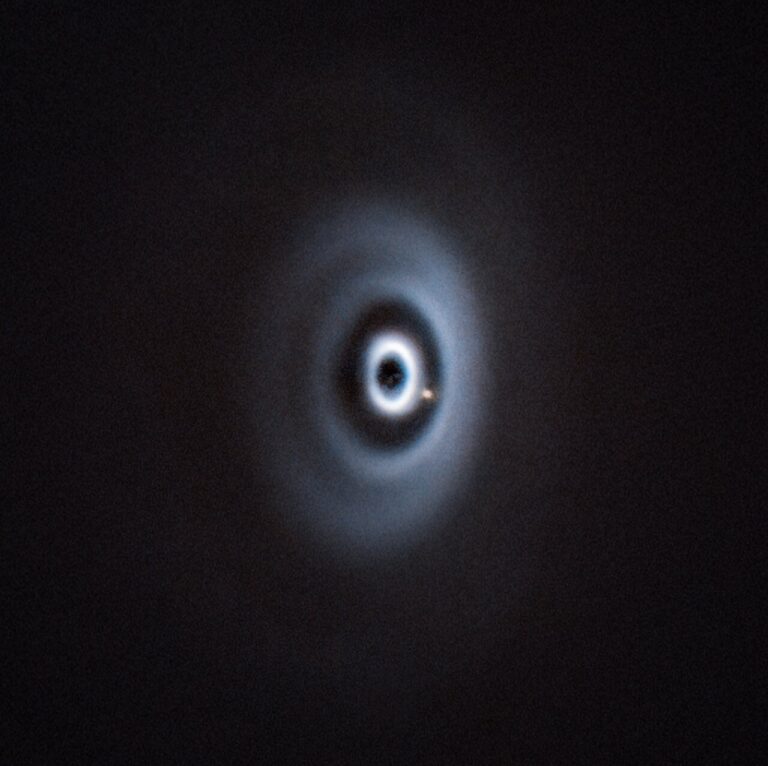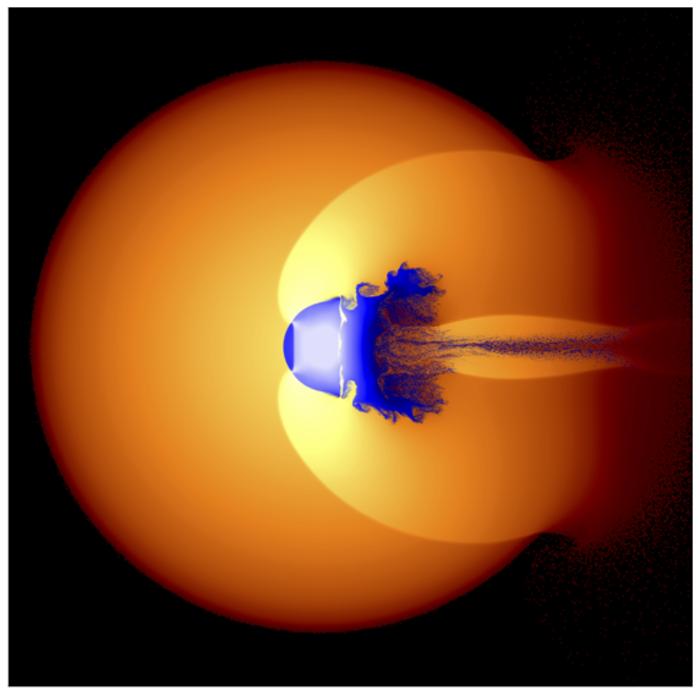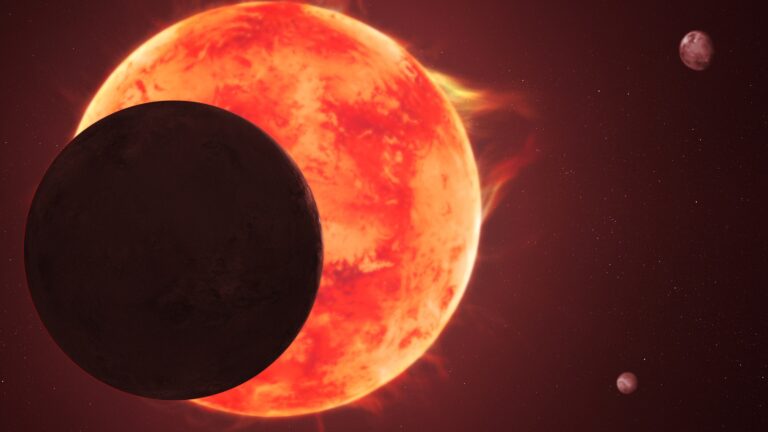Key Takeaways:
We have since learned a great deal about the icy ocean moons of the outer solar system. We’ve seen cryovolcanoes erupting from Enceladus and witnessed nitrogen glaciers sliding across the face of Pluto.
But still we wonder: What life might be out there? If biomes have secured a foothold on the distant worlds of our solar system, what form do they take?
These days, astrobiologists are turning their sights to another alien world, nearly the size of Mars and far more distant: Saturn’s largest moon, Titan.
At first blush, Titan seems an inhospitable place for an active biosphere. Its opaque nitrogen-methane cocoon is the second-densest atmosphere among all the solid bodies of the solar system, after Venus. Its atmospheric blanket sustains surface temperatures of –290 degrees Fahrenheit (–178 degrees Celsius). Still, these chilly temperatures are much warmer than the moon’s smaller sibling Enceladus, whose daytime temperatures hover nearly 80 F (27 C) below Titan’s. Yet despite such frigid temperatures, Titan has other features that might make it more conducive to life.
Titan experiences rainfall. But instead of water, Titan’s clouds dump liquid methane, which is chemically similar to the natural gas that many of us heat our homes with. No matter what the rain is made of, the great moon is the only world besides Earth confirmed to have an active rain cycle fed by evaporation from surface lakes and rivers. Its river valleys drain into liquid-filled basins, some as large as the terrestrial seas. Titan’s largest sea, Kraken Mare, covers about 154,000 square miles (400,000 square kilometers), making it roughly five times the area of North America’s Lake Superior, or nearly the size of Asia’s Black Sea.
A second kind of precipitation may have even more bearing on the search for life on Titan: a steady drizzle of hydrocarbons. This organic “soot” combines with methane to form complex compounds, the raw materials of life. Titan’s winds pile up the hydrocarbon fallout into vast sand seas.
But methane and hydrocarbons aren’t the only things falling from Titan’s soupy skies. Sunlight and radiation from Saturn break up nitrogen and methane molecules in Titan’s atmosphere. When these fragments recombine, they create a compound called vinyl cyanide. Vinyl cyanide is important in the search for life because it tends to assemble into membranes like those found in terrestrial living cells.
This news has exciting implications for life on Titan, but it was a long time coming. Over a decade ago, the Cassini spacecraft detected the building blocks of vinyl cyanide on the distant moon, yet it was not equipped to confirm its existence. Later, in 2014, astronomers calibrating the 66 antennas of the Atacama Large Millimeter/submillimeter Array in Chile happened to use Titan as their target. As luck would have it, their data contained the fingerprints of vinyl cyanide. We now know that thousands of tons of the stuff float high in Titan’s upper atmosphere, and an astounding 10 billion tons may have accrued in Titan’s largest methane seas, Ligeia Mare and Kraken Mare.
Overcoming the cold
The primary roadblock to life on Titan remains its cold temperature. Chemical reactions of any kind (including biological ones) are sluggish. So how could all those organic compounds — called tholins — dissolve in Titan’s methane lakes, combining into life-friendly mixes? NASA Ames astrobiologist Christopher McKay is trying to find out by experimenting in the laboratory with the solubility of organic material in liquid methane and ethane. “If you put the gunk in the water, the water will turn brown like tea, because things are dissolving in it. If you take that same tholin and put it in liquid methane and ethane, nothing happens. The problem is that it’s freezing cold.” To overcome this, McKay says they immerse tholins in isopentane, which is similar to methane, but can dissolve tholins at room temperature.
As part of their experiments, McKay and his team chill down isopentane, adding liquid methane and ethane to the mix. As the process continues, all the isopentane solidifies, separates out, and is gradually replaced by methane and ethane. But the concoction still exhibits some solubility. Using this process, the team “tricks” the mechanism keeping the tholins from dissolving into the methane, allowing them to mix in. “Titan may be able to do that with time. It could be that in the low temperatures, it just takes a lot of time. In my lab, we can’t do an experiment that lasts for a million years, but Titan can,” he says.
Yet some biologists are skeptical that such slow biological processes can occur. It’s possible that biotic forms may have developed weaker chemical bonds than those found in terrestrial life, so the chemical reactions might not be so limited. But this has not, as yet, been seen in nature. Additionally, biochemists have failed to find models that they can point to as possible genetic molecules (those that can store information like RNA and DNA) for Titan. Unlike the diverse structures of protein molecules, hydrocarbons are limited in the way their physical structures can interact with each other and compounds in their environment. In other words, Titan’s a tough place to live.
Although Titan’s surface conditions may make biology a difficult prospect, the world likely has a gentler subsurface ocean — a sea of saltwater 60 miles (100 km) beneath the ice. Careful study of features on Titan’s surface shows that the moon’s crust has wandered over time, shifting the positions of mountains and other landmarks by as much as 19 miles (30 km). Cassini orbital measurements also revealed bulges in the moon’s surface, further suggesting that Titan’s interior has a layer of liquid beneath its frozen surface. The water is likely rich in salts with dissolved sulfur, sodium, and potassium, elements common in the outer solar system. Titan’s briny depths, locked in eternal darkness, seem cut off from any external energy source and separated from the world’s mineral-rich, rocky core. But studies of ice fields show that diapirs — slowly rising masses of solid ice — can transport material from the base of glaciers upward within the ice. It may well be that minerals from Titan’s core have migrated upward to mix with its isolated water ocean, providing life-empowering minerals. Additionally, cryovolcanic surface activity and its organic fallout likely interact with this ocean. Along with the ever-present hydrocarbon soot, this forges another source of biomaterials that may be channeled into the subsurface ocean.
Water has another advantage: It can dissolve a whole host of life-friendly compounds, far more than either methane and ethane. Water is the great enabler of most biological operations we understand, often serving as a bridge between important chemicals that are necessary to life.
But how could we find out if, in fact, Titan has an active, alien biome?
For Lorenz, Titan provides a multitude of possibilities: “There’s plenty to discover in Titan’s seas, even if they are just methane, nitrogen, and ethane. There is the very exciting astrobiological potential of ‘Can you have a whole different chemistry of life in that different solvent?’ There are a whole set of functions like metabolism, information storage, and replication, and you need to figure out how to make the molecular toolbox to do those things. Nobody really knows how well that works there.”
“The story of life on Titan is really the story of energy,” says McKay. “Life is going to need energy no matter what it does or how it’s built; it may or may not need membranes or a particular type of membrane, but it’s going to need energy.” But what energy sources might be available for biological processes?
Solar energy is one available energy source (although it is much lower on Titan than on Earth). Another energy source is hydrogen — in fact, just about every organic on Titan can react with hydrogen to release energy. To astrobiologists like McKay, “That’s interesting in terms of the energy requirement for life, but it’s also interesting in terms of a biosignature.”
Biosignatures — fingerprints of active biology — are markers for which future probes will search. For example, one of the biosignatures of life on Earth is the presence of oxygen. But while life both creates and consumes oxygen, this gas would not confirm the existence of terrestrial life, McKay says. That’s because Earth’s atmosphere is roughly 21 percent oxygen, enough that variations due to life are tiny compared with the total amount of oxygen in the air.
Actively searching for living organisms on any other world is difficult. This is especially true in an environment as alien as Titan. Unlike Mars and Enceladus, where we know that Earth-like life will operate with analogs of terrestrial metabolism, detecting life on Titan will require many different approaches. First, a probe would need to search for biomarkers in the environment, such as imbalances or cycles of gas levels.
Second, in examining surface materials, a lander would go on to search for new structures or unfamiliar, repeating, non-geological patterns. Boats or submarines could sniff out biosignatures in Titan’s methane seas. Orbiters also could detect biosignatures from above. One probe under consideration, a drone called Dragonfly, aims to chart hydrogen levels by scooping up material around it. It will then study the material with an advanced gas chromatograph mass spectrometer, which will separate and analyze specific types of molecules within the sample. On Mars and Enceladus, scientists are looking for water-based life, so they will search for molecules that work well in water like amino acids and lipids. But on Titan, we have no idea which molecules to look for. So researchers will be looking for anything that sticks out and makes them say, “Huh, that’s odd.”
The discovery of life on Titan would be a watershed moment in the biological sciences. Though life on Mars or Enceladus will likely be chemically similar to that found on Earth, on Titan, any life capable of surviving in liquid methane will tell us that more than one kind of life exists in the universe. As McKay puts it, the news would tell us, “Not only do we have neighbors, but they are strange, or we are strange, we don’t know which. It would be remarkable.”




